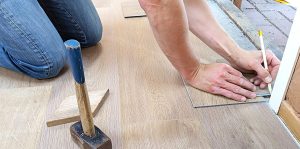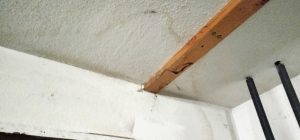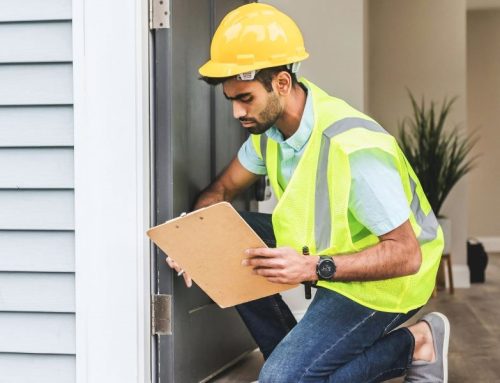Fix and flip homes can be a great deal for all involved – if they are truly “fixed” and not just gussied up and flipped.
A good flipper can take a well-worn abode with needed repairs and renovations and turn it into a refurbished home for a new owner, like getting a certified used car. That could mean new appliances, systems, window treatments and perhaps updated layout and modern features.
That doesn’t mean the buyer always can assume everything is checked, repaired, or replaced properly. There may have been little done other than cosmetic improvements like flooring and paint, or the work could be unprofessional. A buyer still has to do homework and get professional advice.
Spell Out Needs and Dealbreakers
Being willing to compromise on some things is the key to buying a home within your price range, and this takes on extra importance when you’re dealing with a flipped house. Yet, you also need to know that you’ll be safe, comfortable and happy there over time.
Before you search, you and the other decision-makers should list musts, wants, doesn’t wants, and dealbreakers. Share that with your Realtor. This also helps create the checklist of potential problems.
Get a Professional Inspection

Even though the house may look nearly new, you need a professional inspector to check it out. Get a company that will reinspect after the seller makes any repairs to make sure they were done right (or even done; I’ve seen bald-faced lies about the work performed). If questions arise – say, about the roof or structural soundness – you might need to hire more specialized expertise.
Between you and your Realtor, you can catch many potential issues and desirable features within a home. However, you can’t beat a professional inspector’s expertise and eye for detail.
Although you may already be watching your accounts to ensure that you have plenty of money for a down payment and closing costs, it’s worth paying for a quality inspection. Even if issues found aren’t dealbreakers, you’ll be better prepared to make repairs and other changes to the house right away.
In some cases, the home inspector pays for themselves by saving you from making a costly mistake, or getting a repair payment from the seller.
You can also inform your home inspector if you need them to focus on specific aspects of the house. For example, ensuring the home has no history of flooding or mold that could be devastating for someone with respiratory challenges.
What to Check and Warning signs

Ask the home flipper to See Permits, Receipts, and Documentation
Your Realtor should be the one to request all the desired information, and to do so in writing and dated. Make sure all responses also are in writing and dated.
The jurisdiction in charge will require permits for some home remodeling and repair projects, which means the workers have to show plans, apply for permits, and pass inspections.
If the seller of a flipped home can’t or won’t produce permits, it likely means that they didn’t use licensed contractors, and it could indicate that they cut corners on other essential parts of the project. That doesn’t mean they were done poorly; some flippers are experienced and make reliability a selling point. But it’s good information to have.
Following the permitting requirements is a sure sign that a contractor or house flipper took the time also to make sure the electrical, plumbing and other systems follow standard (and required) modern safety protocols. Licensed repair people may be no better than an experienced handyman, but there would be easier to hold their feet to the fire if something wasn’t done right.
Your Realtor also should request receipts and documentation for things that didn’t require permits, like new appliances or window coverings, installed either during the renovation or before. Also see if warranties transfer easily. A reputable house flipper will have no issue with producing receipts and other proof of recent repairs that they claim they did on the house.
If there is no documentation, then this could mean that the work was never completed or that there are deeper issues with the house that the seller is trying to hide.
Look Specifically For Mold Testing and Water Issues

Mold inspections aren’t typically mandatory, but many states, including Arizona, require sellers to report known mold issues in the home. If the house has a history of mold testing or remediation, then it should be included in the disclosure statement. All other problems also must be disclosed (but are not always done).
Look for water damage, usually on ceilings or walls, or attempts to cover up a previous problem without renovating it properly. If it smells musty over new flooring, it could be masking something.
But you might need to be wary if the flooring seems to be covering up something. For instance, a house with a musty smell might have flooded in the past.
You might also see water marks along the base of walls and floors where water-related appliances are, such as the dishwasher or hot water heater. When in doubt, have a professional inspector do further investigation to ensure that the new tile doesn’t cover up an old and growing problem.
Make Sure Doors and Windows Open and Close Properly
Foundation issues are another common problem in homes where people might not have kept up with the maintenance. You’ll especially want to watch out for older homes that have been around long enough for the foundation to shift dramatically.
While it might be hard to check for cracks running along the walls that were patched, you might detect issues with doors and windows that won’t open and close well. At the very least, this could indicate poor quality workmanship on the part of the flipper and their contractors. But, it could also be a sign of a foundation issue.
Either way, fixing poorly installed doors and windows is expensive, and correcting foundation problems is also costly. Since it’s important for your security to have doors and windows that shut and lock properly, this could be a potential factor that influences your decision.
Home flippers typically install new flooring, especially if the house had carpet that easily gets stained. Be wary, though. Sometimes, to save money, flippers will simply lay new flooring over old flooring, like vinyl plank over ceramic tile. That can be structurally fine, but eventually it could show through.
Get a Good Look At the Roof

Checking out the roof on any real estate that you buy gives you a tremendous amount of insight regarding its structural integrity. Seeing shingles that don’t match is a sign that the home flipper merely patched up a few places that had the worst problems.
Since roofing materials tend to age along the same timeline, this could indicate that you’ll be paying for a roof replacement sooner than you might expect. This is also a good time to head up to the attic to look for signs of roof leaks such as water stains along the ceiling.
Be Wary of Cheap Materials and Sloppy Paint Jobs

Using mid-grade materials is a common rule of thumb among reputable home flippers. Seeing the cheapest materials used for the floors, countertops and cabinets might make it seem like you are getting a good deal. But these materials are more likely to break or wear out sooner.
If you plan on upgrading fixtures and other low-grade materials, then this cost-saving measure might work in your favor. Seeing the best quality materials might not always be a good thing, either. In some cases, this could mean paying more for the house than you’ll get out of it when you don’t have strong preferences for specific materials. (I had a seller once with more than $50,000 in marble flooring that no one else liked.)
Sloppy paint jobs are another indicator of a home flipper cutting corners. Needing to repaint or correct drips throughout your house is a minor headache that some people prefer to avoid. Seeing a hasty paint job could also mean that the home flipper lacked the attention to detail that you prefer to ensure that a house is up to proper living standards.
As you search for and select your home, don’t be rushed. Take your time and employ your Realtor’s expertise checking out houses. You’ll be glad you made the effort.
Hal DeKeyser

Contact Form









